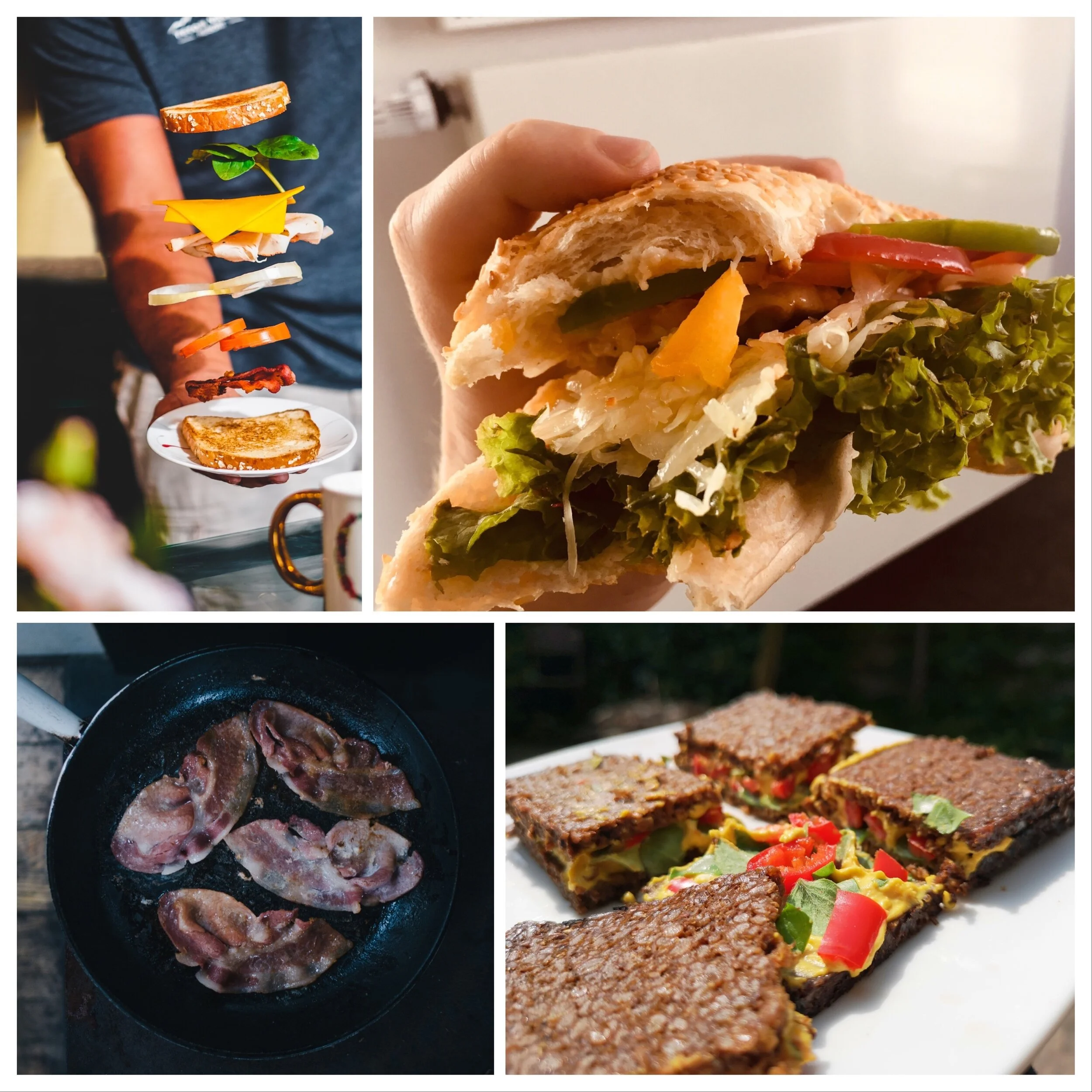My Kingdom for a Sandwich
It’s been a long time since I thought about bacon. For more years than I care to mention, bacon occupied significant portions of my day, either trying to buy it, trying to find a butcher that did it and finally learning more than my fair share of German meat specific vocabulary. Despite my best efforts and some minor successes, I never managed to find a regular supply and eventually I gave up. There are many who would not have quit so easily, but I wasn’t constantly reminded of bacon’s existence, unless I happened to Facetime the UK at breakfast. Moreover, it was easy to find other German food obsessions. A short supply of bacon went from annoyance to minor inconvenience once I discovered Pfefferbeißer, Walnussbrot and Schupfnudel. It might take some time, but eventually there’s a replacement for all things, well, everything except for a decent sandwich.
There are more than enough confusing things about Germany; toilet shelves, Til Schweiger, most interactions with the bureaucracy to name just three. However, of all the confusing things I’ve come across in my time here, German sandwiches are easily the most baffling. In theory, Germany has all the makings of one of the greatest sandwich nations of all time. The basics are all there: Bread is an institution, salad an obsession and so many types of sliced meat it seems rude to list them all (here you go). In practice, most bakeries seem to serve some variant of salami, cheese and ham. Occasionally there’s Tuna, but often it’s mixed with onions or Miracle Whip. The former seems an indelicate choice if a person plans on spending time with other people and possibly masochistic now that we all wear face masks. The latter is the answer to a question no one ever asked, namely ‘What if we put a bag of sugar in this jar of mayonnaise?’.
To be fair to the German sandwich, the bread is usually so good the filling is negligible, but then German bakers often display their sandwiches in a way that suggests the filling is the most important element. Go into a bakery before lunchtime and it’s common to see piles of sandwiches, all perfectly assembled with their fillings peeking out coquettishly for all to see. It’s not until you sit down with your freshly purchased sandwich that you realise some enterprising person has pushed all the filling ingredients out to the edges and what you actually have to do is reassemble the whole thing or face scattering the contents every time you take a bite. You can always tell someone is new to Germany if they stand-up from eating a sandwich and they leave a circle of lettuce, salami and cucumber all around them.
“But” I can hear the defenders of German sandwich honour exclaim “what about Schnitzel, Leberkäse Semmel, or the mighty Fischbrötchen, surely they prove Germany’s mastery of sandwiches?”. It’s hard to deny that sticking a schnitzel in a bun or slapping a slab of Leberkäse in a roll is an excellent and delicious idea. However, I have to discount them for the same reason that we disqualify Olympic athletes for taking performance enhancing drugs. Schnitzel, herring and Leberkäse are effectively the Nandrolone of sandwich filings, the same goes for bacon and meatballs. You may complain, but that’s my rule. After all, without rules, we might as well call hamburgers and hotdogs sandwiches. I shouldn’t have to explain why that path is madness. Ordnung muss sein.
I suppose my biggest issue with German sandwiches is that, unlike bacon, they’re freely available, a daily reminder of what could be. There is epic sandwich potential here, one look at what the US did with all the same ingredients points tantalisingly to a bright sandwich paradise. Every Miracle Whip laden Fladen or badly compiled Stangen is frankly an insult to the rich heritage given to the world by the British Earl of Sandwich back in 1765. It doesn’t matter that the story is probably apocryphal, when has that ever separated a British person from their opinion?
I may well bemoan the lack of quality sandwiches in Germany, but it more than likely reflects the fact that Germans take time over their lunches. Whether an onsite canteen or going to a simple bakery, most people prefer sit-down when they eat. Sandwiches don’t have to be compact, hand fitting and easily transportable if the plan is to order, sit down and take a proper break. Perhaps there is a connection between countries with solid sandwich game, offering a vast selection of different sandwiches and overwork. Germans I know will compliment the amount of choices available in the UK and US, but these are also countries that make an implicit and explicit connection between hard work and hours worked. To be seen sat at your desk eating lunch might be one way a person can show they are “working hard” or it might just be the case that they have no other options because schedule pressures demand it. In Germany, there are stronger workers unions that maintain basic standards with regards to hours worked and breaks taken. People sometimes eat at their desks, but infrequently. More often than not the reason people are eating in the office is because someone is having a birthday or they’re retiring.
Eating while walking doesn’t seem to be that common either. If it does happen, the person doing it usually has a kebap in hand, which is brave given that kebaps are even more likely to disintegrate in your hands than the average German sandwich. You may wonder why I don’t consider a kebap a sandwich, but I’ll refer you to the Schnitzel/Herring/Leberkäse rule from earlier; if those fillings are Nandrolone, Kepab is Usain Bolt on a cocktail of performance enhancing drugs, Red bull and meth.
Maybe I’m too strict, but like any good German I only want to improve what we have already, while at the same time complaining about it to anyone who’ll listen. It’s possible that Germany’s sandwiches are actually a blessing in disguise, a sign that we haven’t yet been fully overcome by the desire to dash from one appointment to another, while trying to gain enough sustenance in the 10 minutes between meetings to survive another long-winded presentation from Gavin in accounting. That would seem like a reasonable exchange, although I do wonder, why can’t we have both?
Image Credit
Photo by Louis Zhang on Unsplash
Photo by Pille R. Priske on Unsplash







